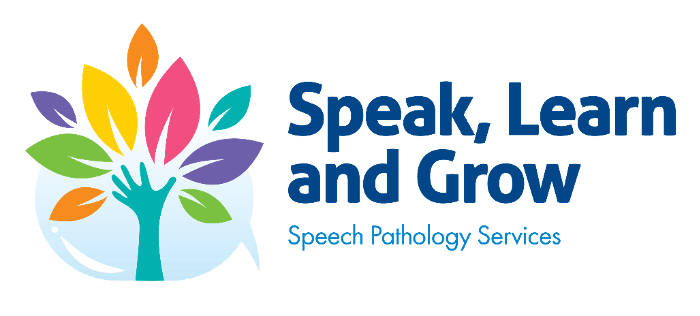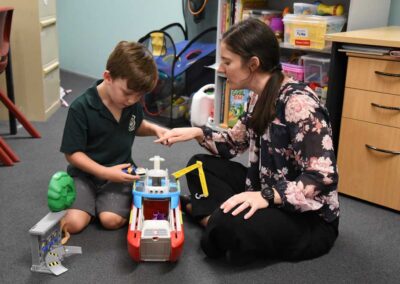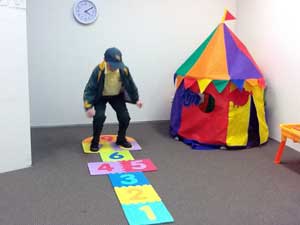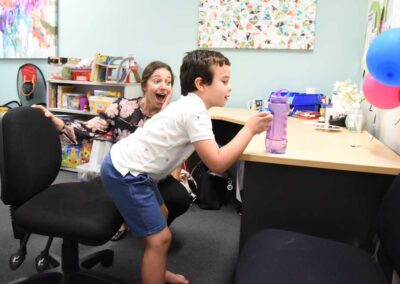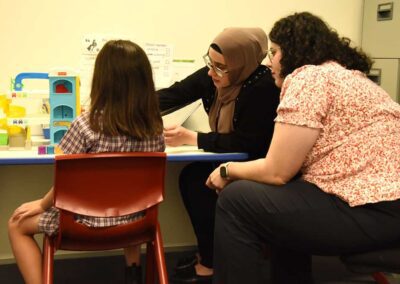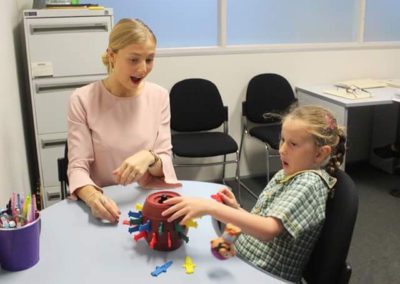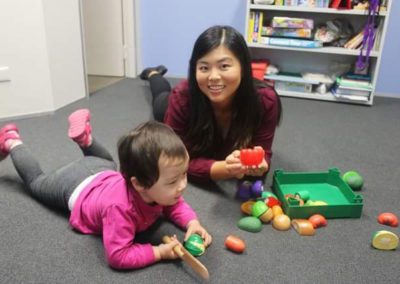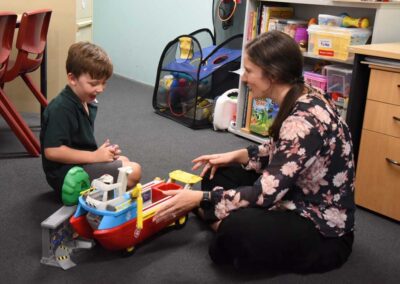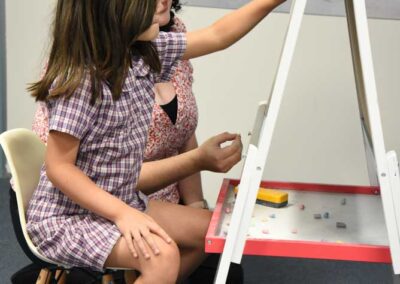Concerned about your child’s flow of speech?

What is Stuttering?
Stuttering is disruption to the normal flow of speech. It is a fluency disorder because stuttering interferes with smooth, flowing, and effortless speech.
What does stuttering look like?
There are many different types of stutters, including:
- repetitions of sounds/syllables (“li-li-like this”), phrases (“I want-I want that”)
- prolongations (“lllllike this”)
- blocks (“I — ike this”)
- interjections (“um”, “uh”, “you know”, “like”), are recognised as “normal” disfluencies
What causes stuttering?
Research tells us that there is no single or known cause of stuttering. Stuttering appears to result from an interaction among several different aspects of a child’s development.
There are several factors involved in the development of stuttering, including:
- factors inherent to the child
- factors involving the child’s environment
- neurological differences
- learning processes
- language development
There are also adverse impacts that children may be experiencing, including:
- tension and struggle
- avoidance
- emotional and cognitive reactions
- difficulties communicating
When should you see a speech pathologist?
You should consider seeking an assessment and treatment if your child:
- has been stuttering for more than 6 months
- is frustrated, distressed and/or starting to withdraw from speaking
- limitations performing everyday speaking tasks and difficulties they may experience achieving life goals
What can a speech pathologist do?
Speech pathologists will first assess your child’s:
- stuttering behaviours in more than one speaking situation and environment
- understand your child’s feelings, emotions, and thoughts about stuttering
- understand the influence of the environment on the child’s communication patterns
- understand difficulties the child may have when speaking in everyday situations
- overall ability to communicate successfully
After a comprehensive assessment, we will offer individualised, effective, and evidence-based intervention to suit your child’s needs, including:
- stuttering management techniques
- fluency enhancing strategies
- learning about the speech mechanism and addressing attitudes / feelings towards stuttering
Successful therapy is seeking to help a child learn how to communicative effectively with increased fluency, reduced negative reactions, minimal impact of stuttering and an environment that is supportive and accepting.
